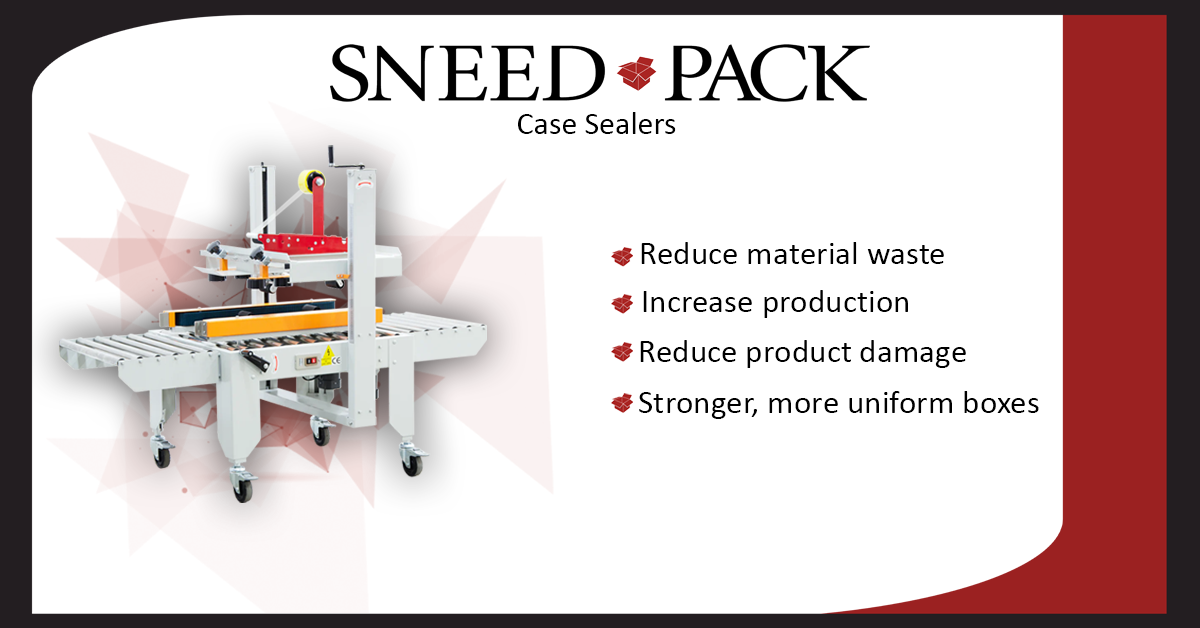What Better Way to Seal The Deal Than With a Case Sealer
What is a Case Sealer?
You might know us for our thermal-inkjet coders and our mission to #KeepCodingSimple, but we figured why stop there when we can help #KeepPackagingSimple as well. Do you feel as though you could be making better use of your time and materials, but you’re stuck taping boxes manually? Not only are you stuck sealing them manually, but let's be realistic, manual labor leaves room for human error.
Luckily for you, we’re proud to announce that we're branching into packaging equipment, starting with semi-automatic case sealers, also known as box sealers and carton sealers. According to Tape University, case sealers are,
- “Primarily used for industrial packaging, a case sealer is a piece of equipment that is used to seal cartons during the packaging process to prepare them for shipment.”
Why would you risk the contents of your package going missing or sustaining damage just because their secondary packaging wasn’t sealed correctly? It’s time to start improving your existing packaging process, especially the box sealing component of it.
What’s the difference between semi-automatic and automatic case sealers?
Before we jump in, it’s important to note that we will only be selling semi-automatic case sealers for the time being; however, that’s not to say that in our near future we won’t expand even more.
- Semi-automatic case sealers require an individual to fold the minor and major flaps before feeding the box through the machine.
- A fully automatic case sealer, as the name implies, requires no assistance to fold the minor or major flaps, before the box is fed to the machine and sealed.
Maybe your business is just starting to pick up, or you’re barely beginning to optimize your packaging process and you don’t need a fully automatic case sealer just yet, no worries our semi-automatic case sealers still pack a punch. At the end of the day you’re still cutting the biggest portion of manual labor out of the equation, which means you’ll still be saving time and money.
What are the benefits of having a case sealer?
While some individuals think that a case sealer’s benefits are limited to just reducing the amount of manual labor needed to properly close cases, they’d be mistaken because there’s so much more than just surface level benefits. According to IPS Packaging & Automation, these are some of the major benefits of implementing a case sealer into your existing lines:
- Aesthetically, your packages look more uniform, no more mismatched tape strips
- Cut back on material waste that comes from human error, like double taping
- Less product damage, compared to when you use staples or glue
- With tape being placed accurately, you’ll have more peace of mind knowing the contents of your package are secured.
- Helps reduce employee injuries, since repetitive motions can cause strains
- Lastly and the most obvious reason, production increases; case sealers are very much a seal and go operation.
Do you see what we mean now when we say that there are so many other benefits that go unrecognized? You’re not just adding a machine that’ll seal cases faster and more accurately, you’re adding a resource that’ll help take the load off of your team members and help them in the long run.
Why should you consider a SNEED-PACK case sealer?
Is your business at a point where you really can’t keep up with demands anymore? Growth happens and you should be proud that you’ve gotten to a point where you need to start taking the first steps toward automation; which is why now would be a good time to consider a SNEED-PACK case sealer. While our case sealers might not be fully automatic, they’re a great choice if you’re just starting to venture into packaging equipment.




